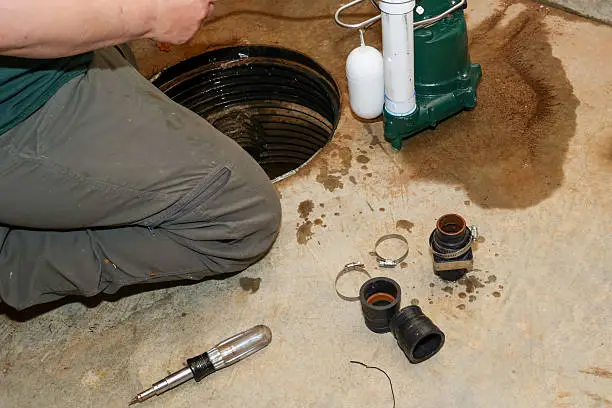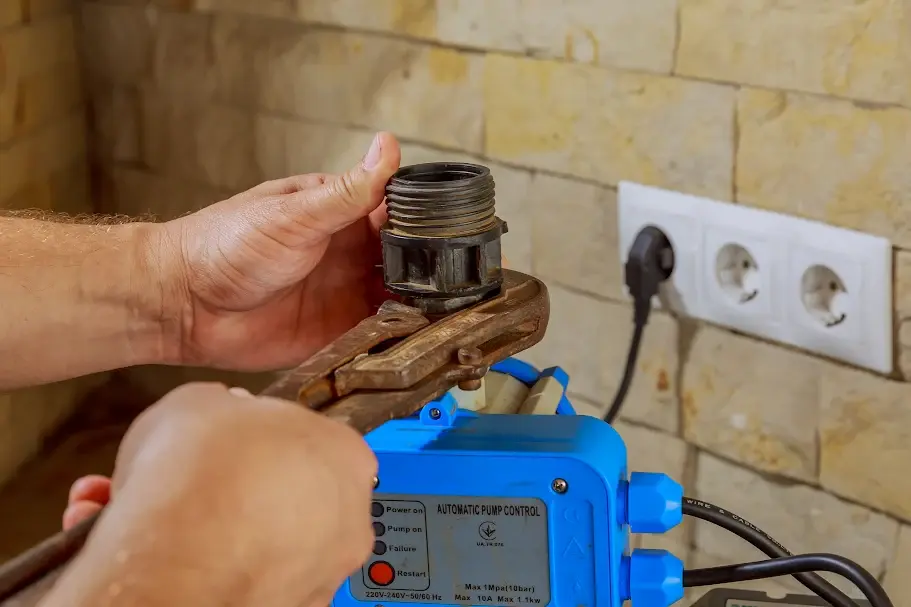Your sump pump works quietly in the background, protecting your home from unseen water threats. But when was the last time you actually inspected it? Many homeowners assume that if the sump pump isn’t making noise, it must be working fine — until the next heavy rainstorm exposes a costly problem.
Skipping regular sump pump inspections may seem harmless, but the truth is that neglect can lead to serious and expensive damage. From flooding and foundation cracks to electrical failures and mold growth, your sump pump plays a much bigger role in your home’s safety than most people realize.
Understanding the Role of Your Sump Pump
A sump pump is your home’s first line of defense against water damage. Installed in the lowest part of your basement or crawlspace, it collects and removes excess water before it can rise and flood your home. In states like WA, where seasonal rain and groundwater shifts are common, sump pumps are essential for maintaining a dry and structurally sound foundation.
When your sump pump fails or goes uninspected for too long, that safety barrier disappears. Without proper inspection and maintenance, even a small malfunction can result in costly repairs and potential health hazards. At Sump Pump Wizards, serving homeowners in Renton, WA, our experts ensure your system runs efficiently to protect your home from water damage and structural risks year-round.
The Overlooked Importance of Routine Sump Pump Inspections
A sump pump is like any other mechanical system — it needs regular attention to perform at its best. Many homeowners don’t realize that sump pumps can develop minor issues long before they stop working completely. Loose float switches, worn-out motors, clogged discharge lines, or stuck check valves can all go unnoticed until disaster strikes.
That’s why routine inspections are so important. A professional technician from Sump Pump Wizards can identify early warning signs, clean the system, test performance, and verify that backup systems are working properly. In a state like WA, where heavy rain and moisture are part of life, preventative inspections can mean the difference between a dry basement and an emergency call for water damage repair.
7 Hidden Dangers of Skipping Sump Pump Maintenance
1. Basement Flooding During Heavy Rain
The most obvious — and most costly — danger of skipping your sump pump inspection is basement flooding. When the system fails, water has nowhere to go. A few inches of standing water can cause thousands of dollars in damage to flooring, furniture, and electrical systems.
2. Mold, Mildew, and Air Quality Issues
Standing moisture creates the perfect breeding ground for mold and mildew. These can spread quickly through walls and ductwork, triggering allergies and respiratory issues. Regular sump pump inspections help prevent hidden dampness and the health problems that come with it.
3. Burned-Out Pump Motors
Sump pumps are built to last, but when debris clogs the system or the pump runs continuously, it can overheat and burn out the motor. An inspection ensures that your pump isn’t overworking itself and that all components are clean and functional.
4. Electrical Malfunctions or Power Failures
A sump pump relies on electricity, and without proper testing, you may not realize it’s plugged into a faulty circuit or lacking a backup power source. During an inspection, professionals check electrical connections, battery backups, and GFCI outlets to ensure the pump won’t fail during a storm.
5. Foundation Cracks and Soil Shifting
Excess moisture can weaken your home’s foundation over time. When a sump pump isn’t doing its job, water pressure builds around the foundation, causing cracks or shifting soil. This can lead to long-term structural problems that are far more expensive than a simple inspection.
6. Loss of Property Value and Insurance Disputes
Insurance companies often deny flood-related claims if they find signs of sump pump neglect. Regular inspections not only prevent damage but also provide documentation that proves you’ve properly maintained your system — protecting both your home and your coverage.
7. Expensive Emergency Repairs
It’s always cheaper to prevent a problem than to fix one. Routine maintenance can catch issues like switch malfunctions, discharge line blockages, or failing check valves early. Skipping inspections could mean paying thousands in emergency repairs after a storm.
Warning Signs Your Sump Pump Needs Immediate Attention
Even if it seems to be working, your sump pump might be showing subtle warning signs of trouble. Pay attention to:
- Strange noises like grinding, rattling, or humming
- Frequent or continuous cycling
- Visible rust, corrosion, or debris buildup
- Water pooling near the sump pit
- A foul odor from stagnant water
If you notice any of these signs, schedule an inspection with a trusted professional such as Sump Pump Wizards right away. Prompt attention can prevent small issues from turning into major damage.
DIY Checkups vs. Professional Inspections
While homeowners can perform basic checks — like testing the float switch or clearing debris — a professional inspection goes much deeper. Experts use specialized equipment to test pump performance, verify discharge flow, inspect backup systems, and ensure everything meets safety standards.
DIY maintenance is good for quick checks, but it’s not a substitute for professional expertise. Sump Pump Wizards technicians in WA have the training and experience to identify problems the average homeowner may overlook. Professional inspections provide peace of mind that your sump pump is ready when you need it most.
Keeping Your Home Safe and Dry Year-Round
Routine sump pump inspections are one of the most effective ways to protect your home from water damage, foundation problems, and costly repairs. By scheduling inspections at least once or twice a year — especially before heavy rain seasons — you can ensure your system runs efficiently and reliably.
Whether you live near the coast or in inland Washington, moisture control is crucial for your home’s long-term stability. Don’t wait for a flooded basement to realize the importance of maintenance. Trust Sump Pump Wizards to keep your system performing at its best, rain or shine.
Conclusion
Neglecting your sump pump might not seem like a big deal — until it fails during a downpour and you’re facing thousands in water damage. Regular inspections protect your home, your health, and your wallet by catching issues early.
Your home deserves dependable protection against moisture, and your sump pump is the unsung hero that makes that possible. Schedule a professional inspection today with Sump Pump Wizards, and ensure your home stays safe and dry all year long.
FAQs
- How often should a sump pump be inspected?
It’s best to have your sump pump professionally inspected at least once or twice a year — ideally before the wet season begins. - What happens if a sump pump fails during a storm?
Without a working sump pump, water can rapidly flood your basement or crawlspace, leading to structural damage, mold, and ruined belongings. - Can I perform a sump pump inspection myself?
Homeowners can test the float switch and clean the pit, but a full inspection should be done by professionals to ensure all electrical and mechanical components are functioning properly. - How long does a sump pump usually last?
Most sump pumps last between 7–10 years, depending on maintenance, usage, and water conditions in your area. - What’s included in a professional sump pump inspection?
A full inspection includes checking the motor, float, discharge line, valve operation, backup systems, and cleaning debris from the pit to ensure optimal performance.




